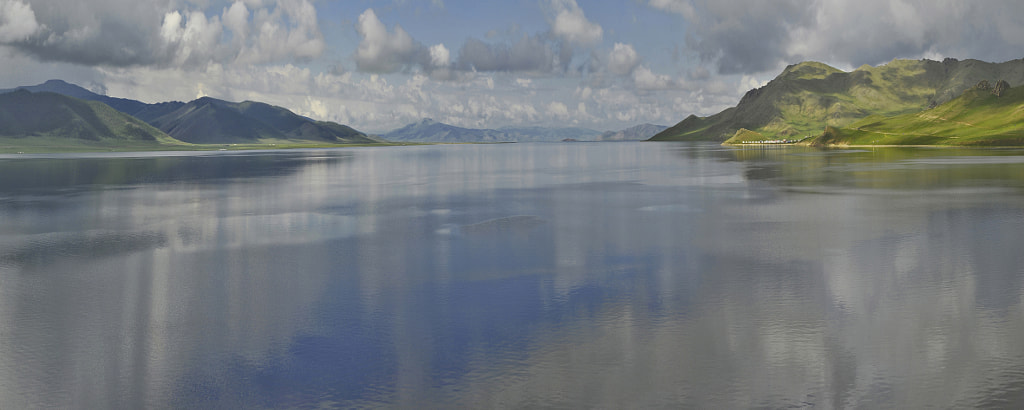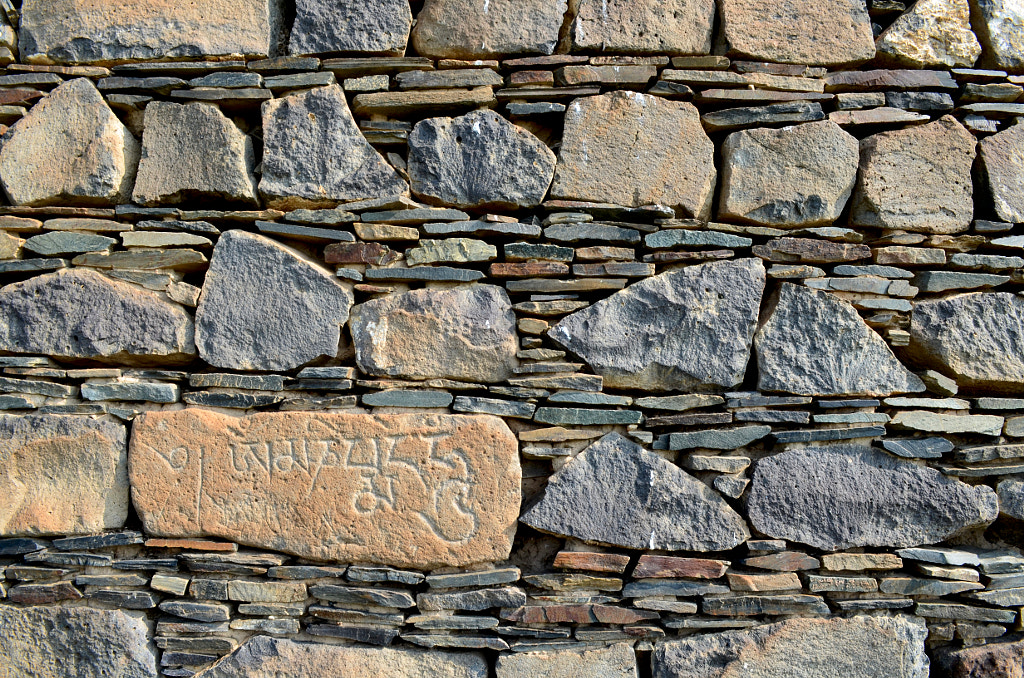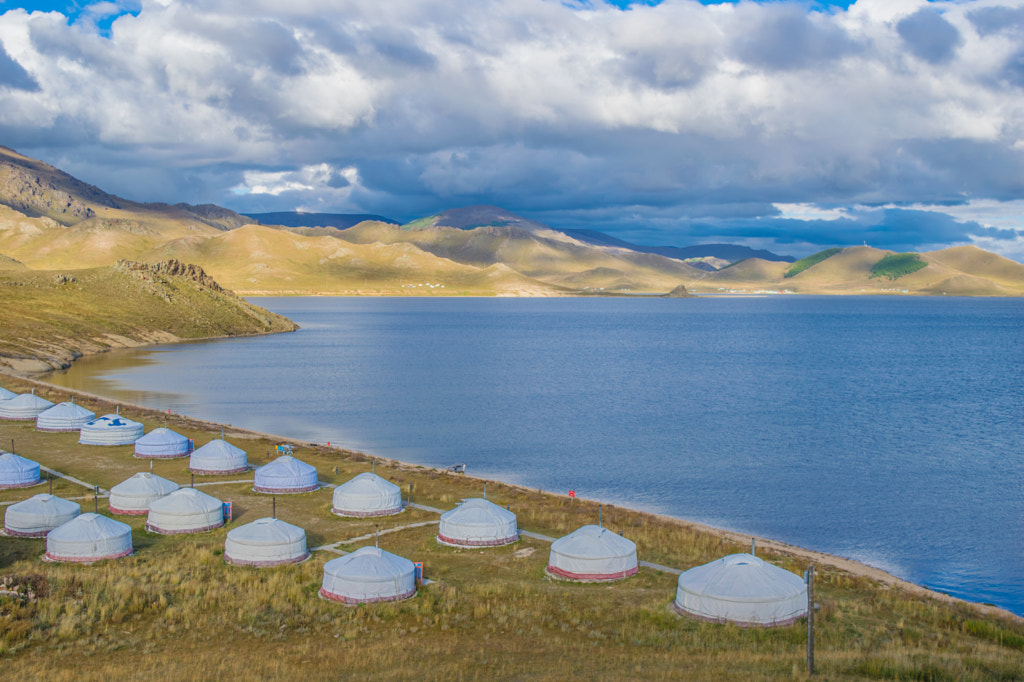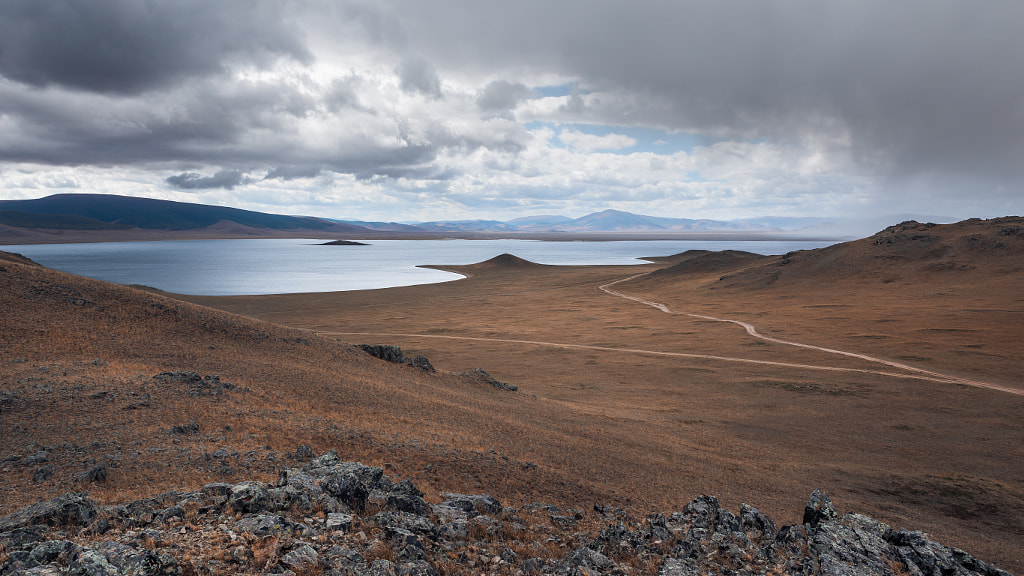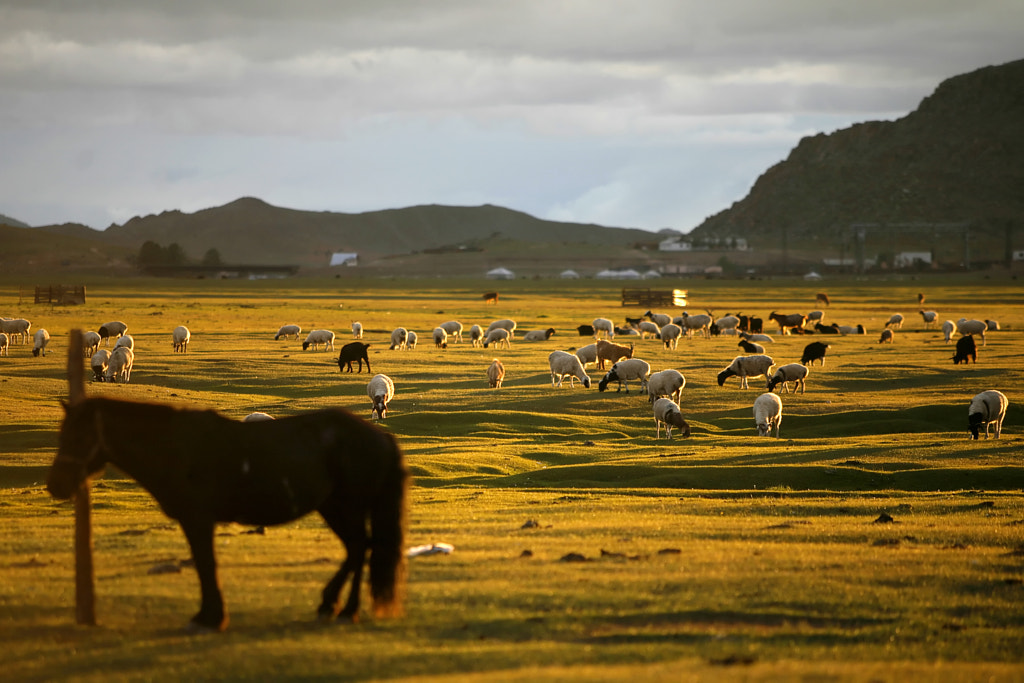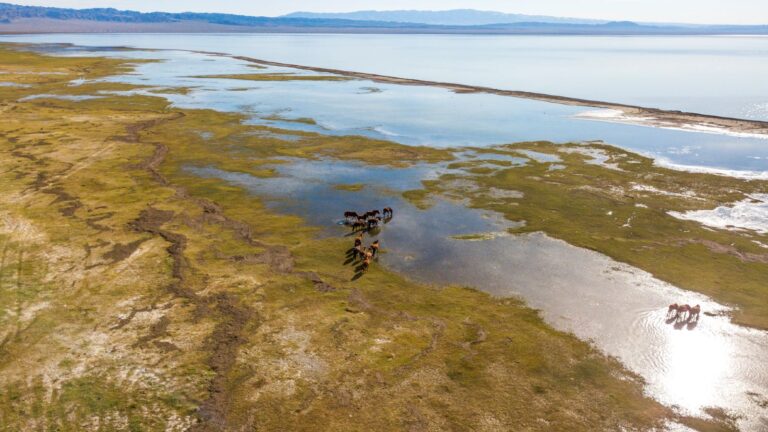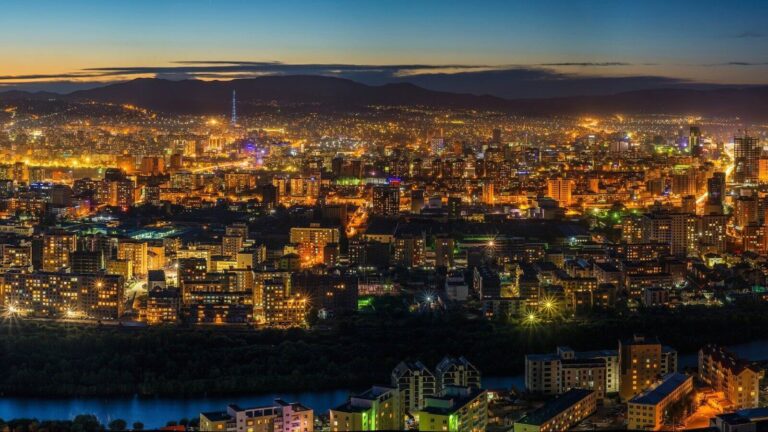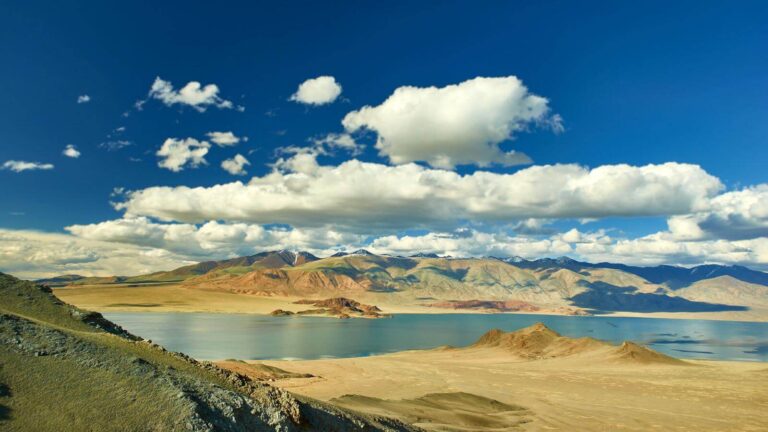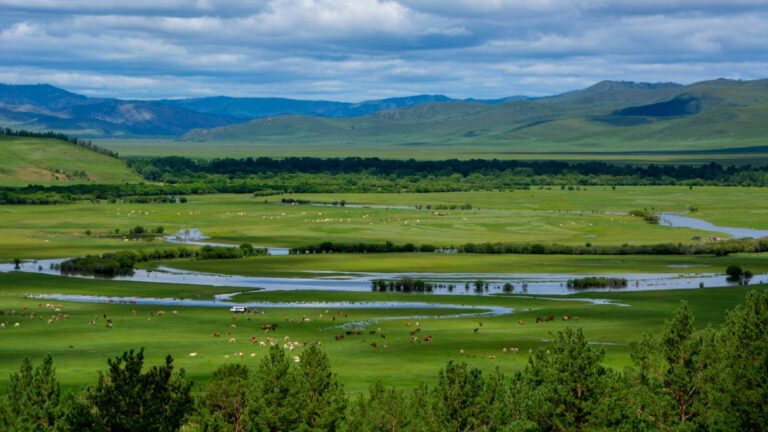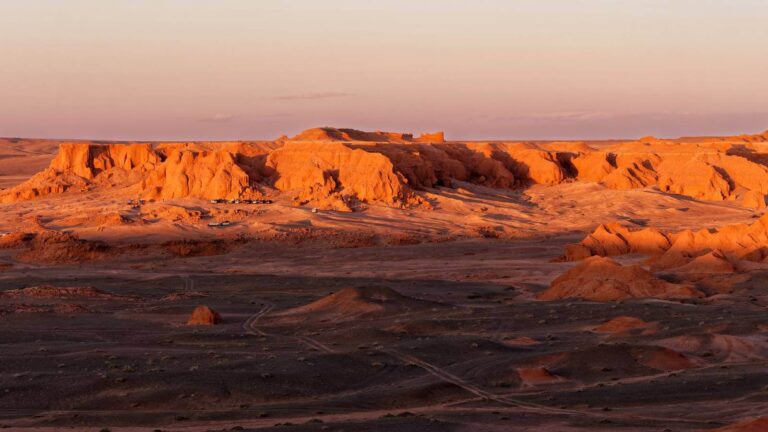Taking a bus or hiring a private vehicle from Ulaanbaatar is the most common way to travel to Arkhangai, about 500km west of the capital.
The centrepiece of the pristine Khorgo-Terkhiin Tsagaan Nuur National Park is its scenic freshwater Terkhiin Tsagaan Nuur (Great White Lake) which spans 16km long and 6km wide. Here you’ll spend a memorable night by its shore in a ger where you’ll wake up to its picturesque volcanic waters. To the lake’s east is the extinct volcano of Khorgo Uul, a memorable hike up to its 200m summit.
Tsetserleg is Arkhangai’s attractive capital and home to the excellent Museum of Arkhangai Aimag. that’s set within the atmospheric 16th-century courtyard-temple complex of Zayain Gegeenii Süm. Overlooking it is the similarly spectacular Galdan Zuu Temple with its 7m-tall Buddha.
One for nature lovers is the Ramsar-listed lake of Ögii Nuur. Known for its abundant birdlife here you’ll find a number of species to tick off your list. It’s another great spot to camp by the lake in a ger and experience traditional Mongolian culture.
Arkhangai is rich in archaeological sites that take in various periods through Mongolia’s history, including Khar Balgas, Khannui and Gol Mod among others. Deer and animal-art stelae are also found here dating back to 1300 BC. The region gained prominence in the 3rd century BC with the rise of the Xiongnu in the Orkhon valle.
Housed within a beautiful 16th-century temple, the Museum of Arkhangai Aimag in Tsetserleg provides a wonderful overview of the region’s culture and traditions.
There’s no better way to get a glimpse into traditional Mongolian culture than a night spent in a ger. Whether staying a tourist camp (which stay open year round), or spending a night with a nomadic family, this Central Mongolia region is a great spot for those wanting to get this quintessential Mongolian experience.
In February you can enjoy Tsagaan Sar (Mongolian New Year) with a family of herders, while in July you’ll get to experience Naadam festivals through the region.
Situated in between the sweltering Gobi Desert to the south and the freezing Siberian taiga to the north, Arkhangai enjoys a more agreeable climate that avoids such extremities in temperatures. However like everywhere in Mongolia the winters are brutally cold. Among its vast steppe is a backdrop of rugged mountains mixed in among peaceful forests, lakes and streams that make this an ideal area to explore on horse and foot.
Agriculture is the main form of income for locals and you’ll see this first hand as you pass herds of roaming livestock of horses, sheep and goats grazing among its unfenced steppe. You’ll get to sample mutton and dairy products as part of your daily diet, as well as more unique offerings such as fermented horse milk.

